Search
Remove Ads
Advertisement
Search Results
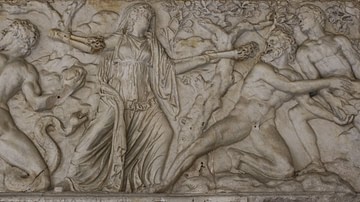
Definition
Leto
Leto is a Titan and the mother of the gods Apollo and Artemis in Greek mythology. Leto's twin children were the result of an amorous encounter with Zeus, and to avoid his wife Hera's wrath, the Titaness was obliged to give birth on the remote...
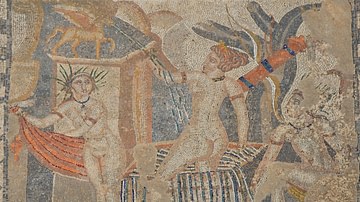
Definition
Diana
Diana was the goddess of childbirth, the fertility goddess, the goddess of the moon as well as the patron goddess of wild beasts in Roman mythology. However, she is best known as the goddess of the hunt, with her sacred animal being the deer...
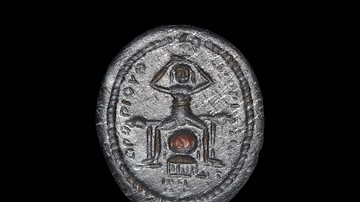
Definition
Eileithyia
Eileithyia (or Ilithyia) was the goddess of childbirth in Greek mythology, with the power to either help or hinder childbirth. She most famously played a role in the birth of Hercules and Apollo. Eileithyia was the daughter of Zeus and Hera...
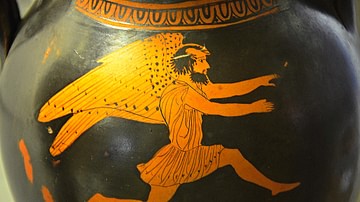
Definition
Boreas
Boreas is the god of the violent North Wind in Greek mythology. He is the son of the Titan Astraeus and Eos, the goddess of the dawn, and brother to Zephyrus (the West Wind) and Notus (the South Wind). He is best known for his bad temper...
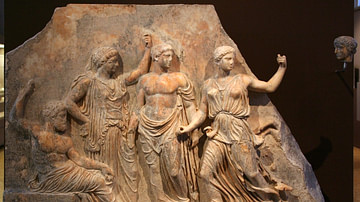
Image
Zeus, Leto, Apollo & Artemis
A relief showing Zeus and Leto with their offspring Apollo and Artemis to the right. 420-410 BCE. (Archaeological Museum of Brauron, Greece)

Image
Leto Fighting Giants
A Roman relief panel from a frieze depicting the goddess Leto fighting Giants. She holds a torch in each hand while the Giants prepare to throw large rocks. From a public building, discovered on the Oppius Hill, Rome. 2nd century CE. (Vatican...

Article
A Visual Who's Who of Greek Mythology
Achilles The hero of the Trojan War, leader of the Myrmidons, slayer of Hector and Greece's greatest warrior, who sadly came unstuck when Paris sent a flying arrow guided by Apollo, which caught him in his only weak spot, his heel...

Definition
Apollo
Apollo was a Greek god associated with the bow, music, and divination. The epitome of youth and beauty, source of life and healing, patron of the arts, and as bright and powerful as the sun itself, Apollo was perhaps the most loved of all...

Definition
Hyperborea
In Greek mythology, Hyperborea was the land located to the far north of the known world and it was so remote it was considered even beyond the North Wind. There a legendary race known as the Hyperboreans lived and worshipped the sun god Apollo...
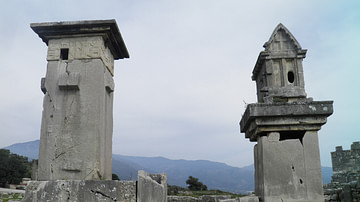
Definition
Lycia
Lycia is a mountainous region in south-west Anatolia (also known as Asia Minor, modern-day Turkey). The earliest references to Lycia can be traced through Hittite texts to sometime before 1200 BCE, where it is known as the Lukka Lands. The...